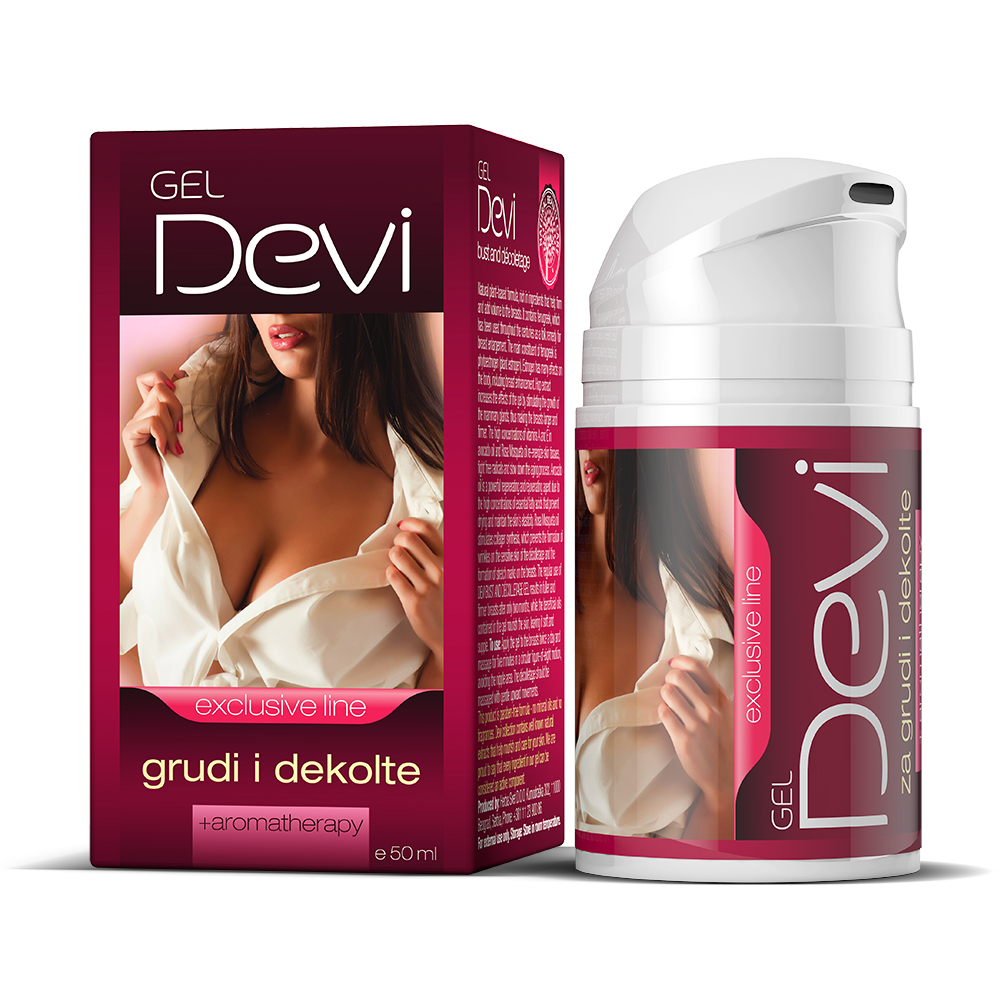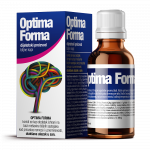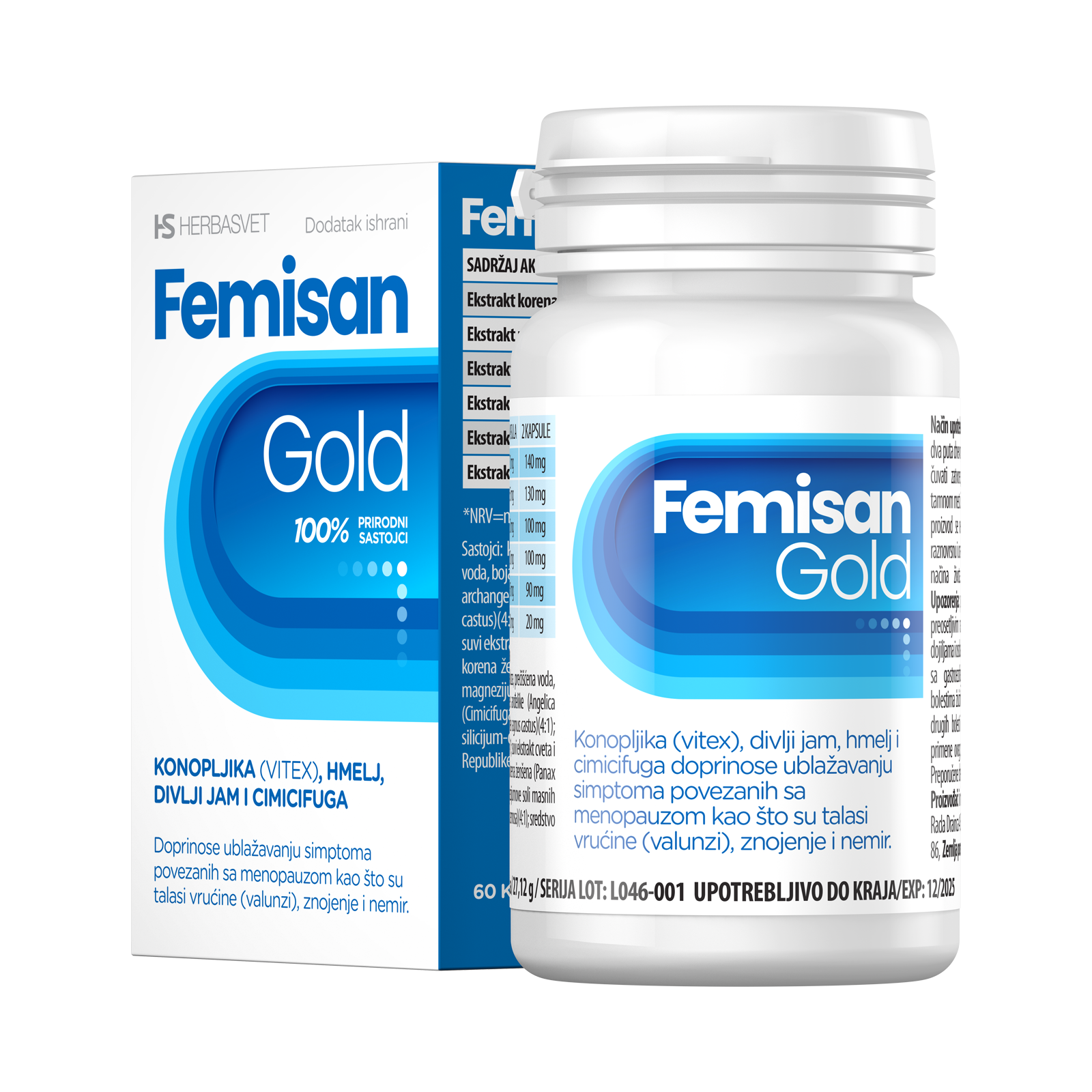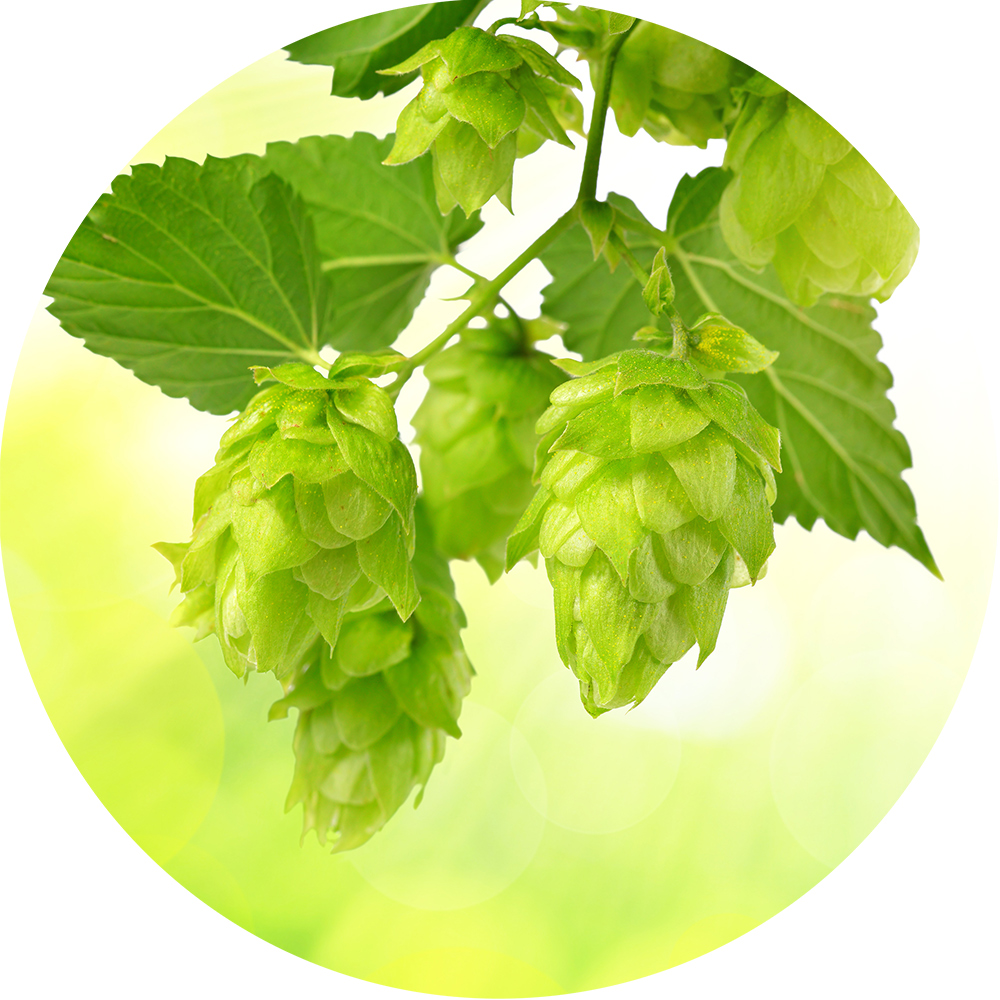(Humulus lupulus)
Hops were given their scientific name Humulus lupulus because of ancient Romans’ wrong belief that this perennial climber tends to strangle other surrounding plants, just as a wolf (lupus) does to its prey.
Even though they were used by American Indians and Arabs for centuries for medicinal purposes, hops were first used in Europe as a favourite ingredient for beer-brewing – hops give beer a special bitter taste. Nowadays we look at beer as a refreshing drink to be enjoyed, but in the past it used to be drunk out of bare necessity. At the time when water was frequently unclean and when diseases would decimate entire villages and towns because of contaminated water sources, only those who drank beer instead of water survived, thanks to anti-microbial properties of hops and alcohol. But beer used to be different from what it is today – it was much milder and it was made without yeast. Hildegard of Bingen, an abbess and a famous herbalist from the 12th century, wrote in one of her books that, with their bitterness, hops prevent beer from going bad and extend its lifespan. At the beginning of the 16th century a law on the quality of beer was adopted in Germany which prescribed that beer could be made only with barley malt, hops and water. At that time, yeast was not used for brewing and the chemical processes involved therein were not known.
MEDICINAL USE
Throughout history, hops have not been used much as a medication. In the 16th century, Paracelsus promoted them as a digestive, and Matiolus as a diuretic. A couple of almanacks mention that they were used to purify blood, liver and pancreas; their calming effect was discovered only in the 19th century. Probably the most famous person who used this plant abundantly, and not only in beer, was King George III of England, who slept on pillows filled with hop cones, for “weak nerves”. Finally Europeans came to the conclusion which Ibn al-Baitar had reached back in the 12th century: that hops can work as a tranquilliser.
The French pharmacist Planch was the first to isolate lupulin in 1813, a fine resinous substance from female flowers – hop cones. He recommended it for its narcotic effect to everyone who suffered from insomnia, claiming that it made it easier to fall asleep as it calmed the nerves, without any negative effects. At that time, opium therapy was popular, but it caused constipation, as well as addiction. In addition to calming the nerves, hops were also used to ‘balance’ the libido – it was noticed that it increased sexual desire where there was none, and that it calmed those people who could not control their sexual desire.
Today, this plant is grown on an industrial scale; there are also wild hops, which contain smaller amounts of the same medicinal ingredients as tame ones. What we definitely know is that hops have been proven to inhibit the proliferation of malignant cells due to its antioxidant effect thanks to the flavonoid xanthohumol.
HOPS AGAINST INSOMNIA
What do we know about hops today and its power to lull us to sleep – is it all a myth or is it supported by science? In 1983, 2-methyl-3-buten-2-ol was isolated from the hops: it is a biogenic volatile organic compound to which we can ascribe at least a part of calming properties of this plant. However, recent research has shown another two interesting facts: hops have an impact on melatonin receptors, a hormone secreted by the pineal gland which is responsible for maintaining the circadian rhythm – the rhythm of sleep and wakefulness. Also, beta acids in hops have a beneficial effect on GABA (gamma aminobutyuric acid), a neurotransmitter in the central nervous system which – alongside a multitude of functions – plays an important part in the sleep cycle – it encourages a deep restorative sleep and easy awakening. A study done on mice has shown that hops have a sedative effect, they slow down spontaneous locomotive activity, prolong sleep and reduce body temperature.
Hops are usually used in combination with valerian, another medicinal plant that is known for its calming effect. Numerous studies have confirmed that this combination was shown to be effective in insomnia by promoting sleep quality, deep sleep and the REM phase, all of which was confirmed by monitoring brain activity. It was also scientifically proven that the combination of hops and valerian reaches its full effect on the central nervous system within one hour.
One recent study focused on investigating the effects of hops, used with and without valerian, in 30 patients suffering from insomnia. One group used only valerian for four weeks and one valerian in combination with hops. It was shown that hops play a major role in improving sleep onset latency – a time it takes to fall asleep. At the same time, the therapy is completely safe, and insomnia does not return after the therapy ends. In addition to having a hypnotic effect, hops are also useful when we feel restlessness, irritability, including menopausal symptoms, anxiety, muscle tension, anxiety, when we are stressed out and have attention deficit disorder.
Good sleep is one of the essential prerequisites for the good quality of life. The ancient Romans may have been right after all – hops act like a wolf that strangles its prey – in this case, the prey is irritability and insomnia. Medicinal hop cones have found their place in a modern preparation based on knowledge accumulated over centuries. In addition to hops, Optima Forma contains valerian and lemon balm, and their synergy helps people of today to cope with stress, depression, a lack of concentration and energy, mental and physical exhaustion. And most importantly – it helps us get a good night’s sleep.
HOPS AND LUSH BREASTS
Hops are also a real friend to women. For those who suffer from oestrogen deficiency, this plant rich in phytoestrogen will ensure that its levels will increase. Hops are therefore useful in PMS and during the onset of menopause, when they will not only raise the level of this hormone, but will also bring the much-needed calm and good sleep. Science has recently made another great discovery – with its strong oestrogenic effect, hops protect women from the onset and development of breast cancer: its main oestrogenic components 8-prenylnaringenin and 6-prenylnaringenin (PN) are responsible for it. Studies have shown that 8-PN is the strongest phytoestrogen that science has so far been able to detect, while 6-PN participates in the metabolism of oestrogen and has strong anticancer properties. That was the reason to introduce hops into the supplement intended for women, Femisan Gold capsules.
In addition to making sure that breasts are healthy, hops also contribute to their beauty and lushness. The very same component – 8-prenylnaringenin – found in hops improves circulation and thus expands mammary glands with its oestrogenic effect. Breasts, whose tissue looks like a sponge, thus become full and pert. By using hops regularly for a couple of months, we can get bigger breasts and more lush cleavage in a completely natural and safe way. No surgery and silicone needed.
Another plant that has similar power is fenugreek. In addition to being rich in phytoestrogens, it also has the ability to stimulate prolactin, a hormone that directly affects mammary glands and their growth. That is why it is very useful for breastfeeding women, because it increases the secretion of milk.
When these two plants join forces, the powerful Devi bust and décolletage gel is created. Enriched with the high-quality oils of Chilean rose, jojoba and evening primrose and the essential oils of bergamot orange and geranium, Devi gel for breasts and décolleté – after merely two months of regular use – can lead to fuller and larger breasts, and make the cleavage look nourished and velvety, while at the same time smoothing wrinkles and preventing the appearance of a dull and ageing skin. Gorgeous breasts maintained in a natural way are every woman’s dream – they can now be achieved by Devi gel for breasts and décolleté.



